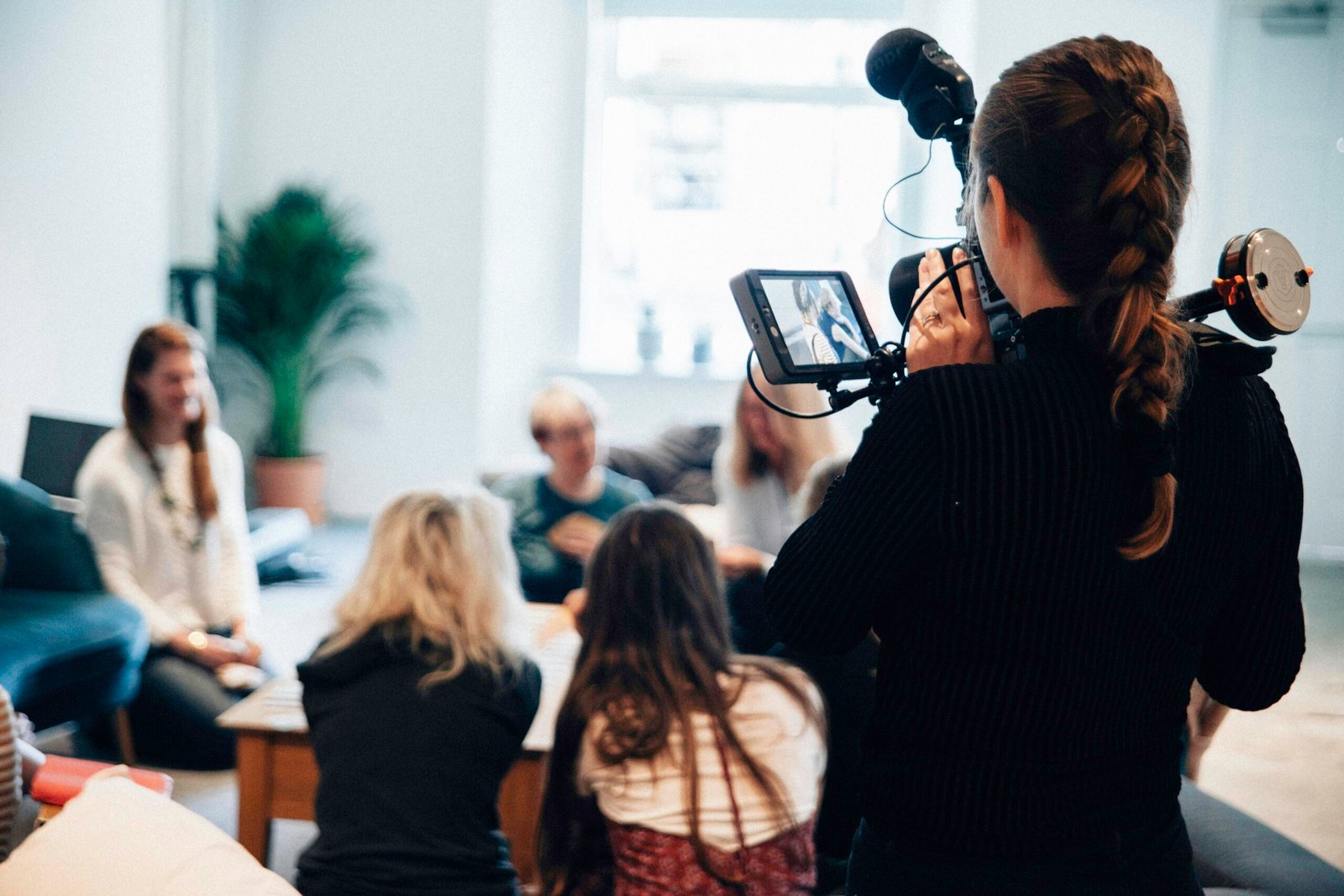“Why Bad Job Interviews Happen and How to Fix It” is a practical guide aimed at helping you navigate the often daunting world of job interviews. This article delves into the common pitfalls that candidates encounter during interviews, such as poor first impressions, lack of preparation, and nervousness. More importantly, it provides actionable solutions to turn these setbacks into learning opportunities for future success. By addressing the reasons behind bad interviews and offering effective recovery strategies, it empowers you to approach your next interview with confidence and poise. So, let’s explore how you can correct these mistakes and secure the job you truly desire!
Why Bad Job Interviews Happen and How to Fix It
Have you ever walked out of a job interview feeling like it didn’t go well? Maybe you didn’t get a callback, or you received that dreaded rejection email. It’s not uncommon to face such situations, but understanding why bad job interviews happen and how you can fix them is crucial to your career success. Let’s dive into this topic and turn those bad interviews into opportunities for growth.
7 Reasons for Bad Job Interviews
1. You Did Not Make a Good First Impression
First impressions are critical in job interviews as they set the tone for the entire interaction. Here are some ways you might have faltered:
- You Arrived Late: Punctuality speaks volumes about your reliability. Arriving late can be a major misstep that’s hard to recover from.
- Improper Greeting: A firm handshake, correct usage of the interviewer’s name and title, and good eye contact can set a positive tone.
- Inappropriate Dress: Your appearance is the first thing the interviewer notices. Think about whether your outfit fit the company’s culture and whether your grooming was on point.
2. You Came Across as Unfocused and Inattentive
Listening carefully and responding appropriately are essential skills. Signs you might have seemed unfocused include:
- Repeated Questions: If the interviewer had to rephrase questions multiple times, it might indicate inattentiveness.
- General Answers: If your answers were vague and prompted further questions for specifics, you may have seemed unprepared.
- Lack of Company Knowledge: Not knowing enough about the company can make you appear uninterested and uncommitted.
3. You Stumbled Over Your Interview Answers
Being unprepared for standard interview questions can leave you fumbling. Most interviews will include common questions like:
- “Tell me about yourself”
- “What are your strengths and weaknesses?”
- “Why should we hire you?”
Practicing your answers to these beforehand can help you respond fluently and confidently.
4. You Did Not Ask Good Questions
At the end of an interview, you’re usually asked whether you have any questions. This is your chance to show interest in the role and the company. Prepare thoughtful questions ahead of time to demonstrate your enthusiasm and curiosity.
5. You Were Too Nervous
Interviews can be nerve-wracking, but excessive anxiety can undermine your performance. Combat nervousness by prepping thoroughly and employing stress-reducing techniques like deep breathing or positive visualization.
6. You Did Not Establish Rapport with the Interviewer
Connection with the interviewer is key. Match their communication style and find common ground to create a comfortable and engaging interaction.
7. You Did Not Close the Interview Properly
How you wrap up the interview can leave a lasting impression. Ensure you thank the interviewer for their time, reiterate your interest in the position, and ask about the next steps in the hiring process.
10 Signs of a Bad Interview
Recognizing the signs of a less-than-ideal interview can help you make adjustments quickly. Here are common indications:
- Interviewer Seemed Distracted: If they constantly checked their phone or seemed disinterested, that’s a red flag.
- Short Interview Time: A significantly shorter than expected interview often signals disinterest.
- Lack of Engagement: If the interviewer didn’t ask many questions or didn’t seem to care about your answers.
- No Mention of Next Steps: If they didn’t talk about what comes next, it may indicate they aren’t considering you.
- No Questions About Your Availability: Employers usually want to know when you can start if they are interested.
- Negative Body Language: Visible signs like crossed arms, nodding off, or lack of eye contact can be concerning.
- Overemphasis on Negative Aspects: Too many questions focusing on failures or weaknesses can be a bad sign.
- Immediate Rejection Signals: Statements like “We have many strong candidates” can hint at disinterest.
- Hasty Conclusion: Wrapping up the interview abruptly may indicate that they have already made up their mind.
- No Tour or Introduction to Team: If normally they would show you around and didn’t, it might be a bad sign.

What to Do During a Bad Interview
So, you realize midway through that the interview isn’t going well. What can you do?
Stay Calm and Positive
Panic won’t help; instead, focus on staying positive and composed. A shift in attitude can sometimes turn the situation around.
Addressing Mistakes
If you realize you’ve made a mistake, addressing it head-on can sometimes work. For example, “I realize I might not have answered that question fully. May I elaborate?”
Engage and Show Interest
Ask insightful questions and engage with the interviewer to shift the momentum. Showing genuine interest can sometimes make up for initial stumbles.
Recovering from a Bad Interview
Not all hope is lost if the interview went badly.
Follow Up
Send a thank-you email to express gratitude for the opportunity, reiterate your interest in the role, and briefly mention any points you wished you had covered during the interview. This can sometimes change the interviewer’s perception.
Reflect and Learn
Analyzing what went wrong can provide valuable lessons. Was it a lack of preparation? Nerves? Understanding the issues helps you improve for next time.
Mock Interviews
Practice makes perfect. Conduct mock interviews with a friend or use online platforms to simulate real interview conditions. Feedback from these sessions can be invaluable.

Common Reasons Why Candidates Fail to Get the Job
Understanding these common pitfalls can help you avoid them:
- Lack of Preparation: Interviewers can tell when you haven’t done your homework.
- Poor Communication Skills: Clear, concise, and confident communication is essential.
- Inadequate Experience or Skills: Sometimes, you simply may not fit the job requirements.
- Negative Attitude: Employers want positive, team-oriented employees.
- Not Following Up: A lack of follow-up can signal disinterest or lack of professionalism.
How to Handle Job Rejection
Rejection is part of the process, but managing it well can set you up for future success.
Stay Positive
Rejection isn’t personal. Use it as a learning experience and keep your spirits up.
Seek Feedback
When possible, ask the interviewer for feedback. This can provide insights into areas needing improvement.
Keep Applying
Don’t put all your eggs in one basket. Continue applying for other positions, improving your strategy with each application.
Reflect on Fit
Sometimes rejection happens because the role or company wasn’t the right fit. Consider whether the job truly aligned with your career goals and values.

Learn from Bad Interviews
Every bad interview is an opportunity to learn and grow. By understanding your mistakes and taking proactive steps to correct them, you can become a more effective and confident job candidate.
Don’t Give Up!
Persistence is key in the job search. Learn from each experience and keep pushing forward. With the right attitude and preparation, your next interview could be the one that lands you your dream job.
Additional Resources
For more tips, sample questions, and preparation guides, check out the following:
| Resource | Description |
|---|---|
| Interview Preparation Tips | Comprehensive advice on preparing for an interview. |
| Sample Interview Questions | Common questions and how to answer them. |
| Interview Follow-Up Techniques | Strategies to effectively follow up after an interview. |
| Coping with Job Rejection | How to manage rejection and stay motivated. |
Remember, bad interviews happen to everyone. What matters is how you respond and what you learn from each experience. Keep refining your approach, stay positive, and the right opportunity will come your way.













